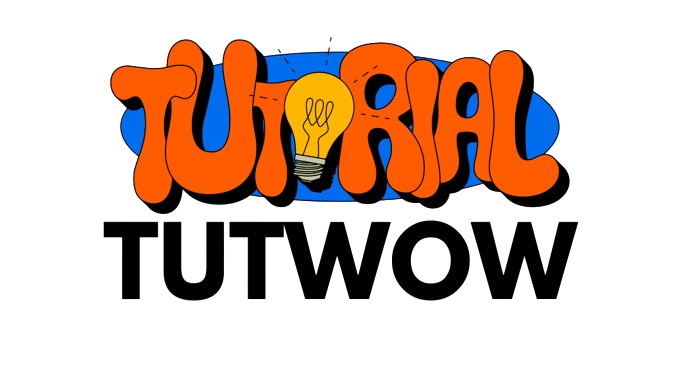Introduction
In today’s digital age, coding is more than just a tech skill; it’s an invaluable tool that can open doors to countless opportunities. Whether you aspire to become a web developer, data analyst, or simply want to enhance your problem-solving skills, learning to code is a worthwhile investment. This guide will serve as your ultimate companion, packed with online resources and tutorials specifically designed for beginners.
Why Learn to Code?
1.2 Career Opportunities
The demand for coding skills continues to grow across various industries. Proficiency in programming can lead to roles in software development, data science, cybersecurity, and even digital marketing.
1.3 Problem-Solving Skills
Learning to code enhances your logical reasoning and problem-solving abilities, which are invaluable in any career.
1.4 Creative Outlet
Coding isn’t just about numbers and logic; it’s also a medium for creativity. You can build websites, create applications, or even play with algorithms to generate art.
Choosing a Programming Language
2.1 Popular Languages for Beginners
Before diving into learning resources, it’s essential to choose your starting language wisely. Here are a few popular options:
- Python: Known for its readability and simplicity, Python is excellent for beginners and widely used in data science and web development.
- JavaScript: The backbone of interactive web pages, JavaScript is crucial for anyone looking to become a front-end or full-stack developer.
- Ruby: With its elegant syntax, Ruby is often recommended for beginners and is used in web development frameworks like Ruby on Rails.
Online Resources for Learning to Code
3.1 Interactive Coding Platforms
Interactive coding platforms offer a hands-on approach to learning programming. Here are some of the best resources available:
Codecademy
- Overview: An interactive platform that offers coding classes in various programming languages including Python, Java, and HTML/CSS.
- Why Choose It: It breaks down complex concepts into manageable chunks, allowing you to learn at your own pace.
freeCodeCamp
- Overview: A completely free non-profit initiative that helps people learn web development through project-based learning.
- Why Choose It: You can earn certifications by completing projects, enabling you to build a portfolio as you learn.
Khan Academy
- Overview: Known for its comprehensive educational content, Khan Academy offers computer programming courses in JavaScript and SQL.
- Why Choose It: It has a unique, gamified approach to learning, making coding fun and engaging.
3.2 Structured Online Courses
If you prefer a more traditional learning environment, consider these structured courses:
Coursera
- Overview: A platform offering courses from reputed universities and institutions.
- Recommended Courses: "Programming for Everybody" by the University of Michigan and "CS50’s Introduction to Computer Science" by Harvard University.
Udacity
- Overview: Known for its “Nanodegree” programs, Udacity prepares students for employment by offering industry-relevant courses.
- Recommended Programs: Become a Full Stack Web Developer or Data Analyst.
edX
- Overview: Like Coursera, edX offers courses from universities and institutions worldwide.
- Recommended Courses: “Introduction to Computer Science” by MIT and “Python Data Science” offered by IBM.
3.3 YouTube Channels
If you prefer video content, YouTube is an incredible resource for learning to code. Below are some popular channels:
- Traversy Media: Offers tutorials for web development, covering languages like HTML, CSS, JavaScript, and more.
- Academind: Focuses on modern web development and programming languages.
- The Net Ninja: Great for beginners with an overview of multiple technologies and languages.
Best Practices for Learning to Code
4.1 Set Realistic Goals
Start with small, achievable goals to build your confidence. This could be as simple as writing a basic "Hello, World!" program or building a simple webpage.
4.2 Practice Regularly
Consistency is key when learning to code. Try to code every day, even if only for 30 minutes. The more you practice, the better you will become.
4.3 Join Online Communities
Participating in online forums can provide support and encouragement. Websites like Stack Overflow, GitHub, and Reddit’s r/learnprogramming are great places to ask questions and share knowledge.
4.4 Build Projects
Apply what you’ve learned by creating personal projects. Start with simple projects and gradually increase the complexity.
Utilizing Online Tutorials
5.1 Finding Quality Tutorials
When searching for tutorials, look for the following:
- Updated Content: Ensure that the tutorials reflect the latest developments in the language.
- User Reviews: Reading through reviews can give insight into the effectiveness of the tutorial.
- Free vs. Paid: Depending on your budget, you might want to explore both free and paid tutorials.
5.2 Recommended Tutorials
- W3Schools: A great resource for HTML, CSS, and JavaScript. It provides easy-to-follow tutorials along with interactive examples.
- MDN Web Docs: A go-to resource for web developers offering documentation and tutorials on web languages.
- CodingAcademy’s Blog: This blog has numerous coding tutorials and articles that cater to all skill levels.
Conclusion
Starting your coding journey can seem daunting, but with the right resources and a commitment to learning, anyone can become proficient in programming. Remember to explore different languages, utilize online resources, and join communities to enrich your learning experience.
As you embark on your coding journey, be patient with yourself and enjoy the process. Every line of code written brings you closer to the skills you aim to acquire.
Happy coding!
FAQs
Q1: Do I need a computer science degree to learn coding?
No, you don’t need a degree. Many successful coders are self-taught through online resources and practical experience.
Q2: How long does it take to learn coding?
The time it takes to learn coding varies greatly depending on your goals and the time you can dedicate. A basic proficiency can be achieved in a few months, while mastering a language may take years of practice.
Q3: What are the best languages to start with?
Python and JavaScript are often recommended for beginners due to their simplicity and versatility.
Q4: Is online learning effective for coding?
Yes, online learning can be very effective, especially when supplemented with practical exercises and projects.
Q5: Can I make money after learning to code?
Absolutely! Many entry-level coding jobs are available, and freelance coding opportunities are plentiful. The skill can significantly enhance your earning potential depending on your niche.
Q6: What’s the best way to practice coding?
Work on projects, participate in coding challenges, and contribute to open-source projects on platforms like GitHub to apply what you’ve learned actively.
By following this ultimate beginner’s guide and leveraging the vast array of resources available online, you are well on your way to becoming a proficient coder. Dive in, stay curious, and embrace the journey!

